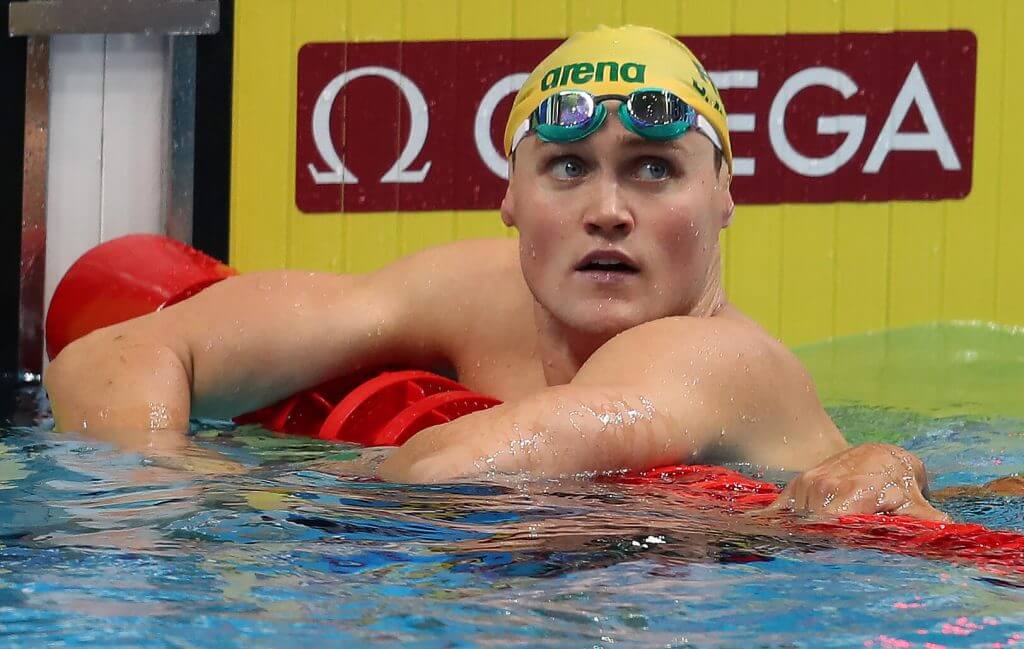5 Ways to Snap Out of Your Swimming Slump

5 Ways to Snap Out of Your Swimming Slump
Swimming competitively can provide all sorts of triumphs. After putting in so much work in training, improving results can be therapeutic for swimmers. But, as with anything we do, these positive results are never guaranteed. Whether you are a novice, a professional, or somewhere in between, there are almost always going to be stretches that come during your season where your performance just isn’t at a level it should be.
These prolonged stretches are commonly known as slumps, and they can be a massive burden. Often, athletes are unaware of their recession causes, so they look in the wrong places for a solution. As a result, they can fall even deeper into a slump. Athletes often struggle to break free from a slump because they become frustrated, aren’t honest with themselves, or lose confidence in their ability to succeed. While slumps are practically inevitable, these five tips can help you to break through and get back on track.
1. Acknowledge a Need For Change
To break free from a slump, you need to start at the root of the problem. The first step is determining whether it is a physical or mental slump. Physical slumps such as recovering from injury or changing your mechanics take patience and time to overcome. On the other hand, mental slumps can be more challenging to overcome, particularly if you’re unaware of their cause. Frequently, athletes will try everything they know to get out of their slump, but nothing works. Subsequently, they don’t know any other solutions, so they just keep doing the same thing. This can get even more frustrating as the lack of positive results continues. This can add to the harmful emotional component and makes the slump even worse.
2. Be Willing to Adjust
Once you figure out the areas in which you can change for the better, you need to be willing to follow through. It can be particularly challenging to try out a new way and admit that your way isn’t working, especially if it’s a habit you have had for most or even all of your swimming experience. It may sound silly that this step is necessary, but you must realize that the best way to attain better results is through better habits. Otherwise, you will find yourself clinging to old habits that no longer serve you well.
3. Establish Short-Term Goals
Once you figure out how you can get out of your slump, it is time to create a plan and take action. Whether swimmers are in a slump or not, it is common to focus intently on long term goals, such as our performances at our most important competitions that will not occur for weeks or months. Once you are in a slump, it does no good for your frame of mind to worry about a string of poor performances negatively impacting progress towards your ultimate goals. Instead, figure out short term goals that you can achieve to bring you out of that slump. For example, try and focus primarily on certain aspects of your swimming when you’re training. When you can make specific improvements within your strokes, you optimize your training and feel more confident about your swimming.
4. Don’t Panic
Among the most significant difficulties that a slump in performance can bring is the mental strain. Fear of failure is often the first step in falling into a slump. Realize that slumps are normal and that there are a variety of strategies to curb them. Your teammates, coaches, family, and friends can also play a role in helping you out of your slump. Realize that you have what it takes to succeed, and keep doing the little things to break that negative stretch. Slumps are only as big of a deal as we make them, so it is essential to realize that you, as the athlete, are in the driver’s seat.
5. Keep Moving Forward
While it is imperative to learn from events that happened in the past, one should not dwell on them. Focus on the task at hand rather than worrying about things you cannot control. Overthinking past events is counterproductive. Athletes can be susceptible to reliving a lousy race or even terrible misplay that cost them or the team. However, dwelling on these past mishaps can evoke those same negative feelings, which will affect performance again and again in an endless cycle
Slumps, whether as a team or individually, can be extremely difficult to get over. It takes a while to work out why they happen and to work out a way to return to a more positive frame of mind. Staying motivated and committed to your goals is essential. It can be all too easy to begin questioning your goals when you are in a slump. Stay patient and remind yourself what motivates you to compete. Once you master all of these steps, it will be easier to get out of your slump and back on track to a successful season.



